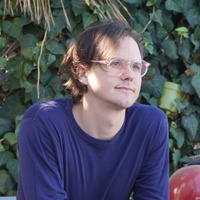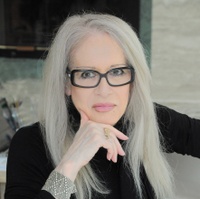On doing what you love for as long as you can
Prelude
Judy Collins is an American singer, songwriter, author, and activist who emerged in the 1960s as a voice against social and environmental injustices. With several Top 10 hits and gold- and platinum-selling albums, the award-winning artist is esteemed for her imaginative interpretations of traditional and contemporary folk standards and her original compositions. At age 80, she is as creatively vigorous as ever, writing, touring worldwide, and nurturing fresh talent. She is an accomplished painter, author (Cravings, Sanity & Grace and Sweet Judy Blue Eyes: My Life in Music) filmmaker, record label head, musical mentor, and social activist. Her latest album, Winter Stories, is a collaboration with Norwegian folk artist Jonas Fjeld and bluegrass band Chatham County Line.
Conversation
On doing what you love for as long as you can
Singer, author, and activist Judy Collins on collaboration, the value of having a wide variety of creative pursuits, and paying attention to what’s happening in the world.
As told to T. Cole Rachel, 1725 words.
Tags: Music, Inspiration, Process, Success, Collaboration.
It seems like you’re always juggling a variety of projects.
It’s always busy, of course. I have a new album coming out this year, which was recorded over the past few months. It’s called Winter Stories, and it is a wonderful musical journey for me. I recorded with a group called the Chatham County Line. We’ve had a great experience making this album and we’ve done a show together in Colorado this summer. We’re playing together for a few days at Joe’s Pub in New York. That is a part of the public theater.
You’ve made records with so many different kinds of people over the years. How does the process of collaborating work for you now? Are you always seeking out new people and opportunities to do things that you haven’t done before?
Collaborators usually just come along to me. I must say it’s sort of magical the way they arrive. I’ve had a lot of things that just dropped into my lap. It’s been that way my whole life. One of the first collaborations I ever did was when I was 11. I sang the lead in Snow White and I got to do “Someday My Prince Will Come.” My Prince was named Rowley and he was 10 years old and I had a big crush on him. So maybe that was my first real collaboration.
Then when I was 13 I played a Mozart piano concerto—the one that Mozart wrote for himself and his sister—and my co-pianist was a 16-year-old named Danny Borrero, who still has a big career and has his own band in California. So I guess I’ve done a lot of collaborating over the years.
And then of course making records with so many different artists starting in the ‘60s. Oddly, I didn’t really do any duets, so to speak, at least not on records. When was my first duet, I wonder? Do you know? [laughs] Oh, well. I sang a duet with Leonard Cohen. I think it was on television, but I don’t think it was ever on a recording.
There wasn’t, sadly. I know because I tried to find it recently.
Isn’t it wonderful? We just never thought of recording it. And by the time I got around to recording a duets album, he was very sick and wasn’t doing much of anything.
You are sort of known as an interpreter of songs, and there are certain ones that people always reference—Joni Mitchell’s “Both Sides Now” and “Send in the Clowns”—but I love some of the less famous ones, particularly when you covered Phil Ochs.
I love singing his songs. He was a good friend. In fact, he’s the one who brought Eric Anderson up to the apartment that I was living in before I moved here. It must have been 1965. I was on West 79th and I had just moved up there, and he brought Eric Anderson to the door and said, “Here’s this guy. He’s written this song.” And Eric came plunging through the door and raced for the bathroom where he wrote the lyrics to “Thirsty Boots” on a matchbook. Then he played it for me, and then he left in a hurry. I recorded it the next week, I think.
I knew a whole bunch of folks who lived here in the city during the ‘60s, and people would stay at my apartment all the time. They’d come through New York and they’d need a place to hang out and they’d come and stay with me. So Phil knew my place very, very well. He came to my door and he said, “We have to go downtown to the hotel where the yippies are having their press conference.” It is not often mentioned, but he was one of their founders.
He and I would go on to sing at their trial—the Chicago Seven trial—but the judge stopped me from singing, which was kind of hilarious. Phil chose very wisely to sing out on the street for the press, instead of in the courtroom like me, and it got into all of the papers. Anyway, he was a wonderful guy. Sadly, he was an alcoholic, and frankly that’s got a lot to do with what happened to him and how sort of peculiar his behavior became. He was a wonderful guy. I loved him.
You maintain a very rigorous touring and performance schedule. How has the experience of performing changed for you over the years?
I’ve gotten better, I hope. I love it. It’s my life. It’s my passion. I’ve been doing this for 60 years and I do 120 shows a year. I also write books, I write songs, I make albums. There is the new album coming out now, but the next three are already in preparation. So it never ends. Eventually I’d like to do another duets album. I did one in 2015, Strangers Again, and I was nominated for a Grammy. It was my first Grammy nomination in 40 years.
To do all those different things and to perform so much—where does that compulsion come from?
Well, it is a compulsion. But first of all, I’m an artist. I’m a working artist. That’s what working artists do. They do their art, whatever it is, and they do it all their lives. So it’s not that we are people who have to look for a reason to exist. We find it early, usually, and do it all our lives. And I think it keeps us alive. I know for me, it was what provided the incentive to stay on the planet. So that’s kind of bigger than just getting a day job, isn’t it?
It can be easy for a lot of established artists to sort of become siloed off in their own worlds, but you remain very connected to all of these different worlds. Seeing someone like Justin Bond pay homage to you recently was a reminder of just how much your work speaks across genre and generational divides.
Oh, Justin is wonderful. I am lucky. I’ve done a lot of things musically and artistically. I’ve written nine books, which puts me into that realm of going out on book tours and speaking at events, including speaking at mental health organizations, which is something that I feel strongly about and I am partial to. I’m a nominee for an Academy Award as a filmmaker. The main thing that I’ve learned, and the advice I give everybody, is to just show up. Try. That’s the bottom line, or the starting line, rather. And so I’ve done a lot of things. My friends include lots of different kinds of people, not all of them musicians. A lot of painters, a lot of writers, a lot of artisans, a lot of people who do other things for their living. And, in part, that’s why I live in New York.
It’s important, I think, to have lots of friends who aren’t necessarily doing the same thing as you. You grow so much more from taking in other experiences and points of view.
Very important. It’s like the real life version of going to school and taking lots of general education classes or whatever they call them nowadays. I also read like a maniac. I read history, I read mystery. I am a devourer of books of all kinds. I’m constantly trying to keep up with the other artists I know who’ve written books. My friend Eugenia Zuckerman just wrote a book about Alzheimers, Like Falling Through a Cloud. It’s the most beautiful book. And Erica Jong is a good friend, so when her poetry comes out I read that. I’m doing a party tomorrow night for my friend Sheila Weller’s book about Carrie Fisher.
So many artists now have the urge to address politics in their work, which is something you’ve always done. Do you feel like artists have a responsibility, on some level, to get political?
We live in a universe and on a planet where there is abuse of all kinds, and it doesn’t matter whether you’re a painter or a singer or a documentarian or a writer, it’s part of your world. You run into it around the corner, you run into it by walking out your front door. If you’re a photographer, you’re bound to see a world that is increasingly terrifying and inhumane. It’s not a responsibility for you to do anything about it, but you can’t pretend not to see it. For me, it’s always been out there in the world, ever since I was a child. I was made aware of it through my family at an early age—the injustice and the struggle to stay on the planet and how important it is for us to vote and to speak up and take part. My most recent song is called “Dreamers” and I sing it at every show. Today, when DACA is being explored, “Dreamers”—which is all about immigration—is as important as ever. So yes, you take your shots where you can.
You’ve released nearly 50 albums at this point. How do you reckon with that kind of catalog when it comes to performing live?
The first thing is you have to cherry pick what you want to do, and you have to reach back. Also, my musical director has been with me for 25 years, so he’s able to pull things out and we can do them on the fly. And so that makes perfect sense. We seldom do the same show twice, and we try to mix it up at all times so that we’re always looking at new things and reaching back into the past to do older things. At this point, it’s an endless well.
Essential Judy Collins:
“Send in the Clowns” - written by Stephen Sondheim for the 1973 musical A Little Night Music
Judy Collins & Leonard Cohen - “Hey, That’s No Way To Say Goobye” 1976
“In the heat of the summer” - Phil Ochs cover
“Both Sides Now” - Joni Mitchell cover
“Turn, Turn, Turn” - Byrds cover
- Name
- Judy Collins
- Vocation
- Singer, Songwriter, Author, Activist
Some Things
Pagination



